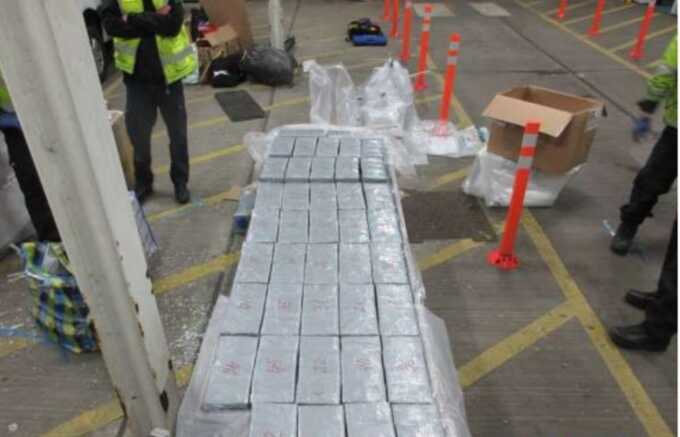Crypto ‘Laundromat’ linked to Russian financial sector and cocaine trade, police say

Britain’s National Crime Agency said the money laundering bust was its biggest in a decade.
An international money-laundering ring run out of Moscow and Dubai has been moving billions in cryptocurrency and hard cash for criminal operations, ranging from Russian ransomware attacks to street-level drug deals in the U.K., Britain’s National Crime Agency (NCA) said Wednesday.
Several alleged key figures in the money-laundering ring, which the NCA said had “multiple links to the Russian financial sector,” were sanctioned by the U.S. also on Wednesday.
They included George Rossi, the Russian-born Ukrainian founder of the TGR group of companies, one of two “criminal enterprises” allegedly running the network. The other group, Smart, was led by Russian national Ekaterina Zhdanova, whom the U.S. sanctioned last year.
The NCA said Smart and TGR specialized in transforming “a big pot of dirty crypto” amassed by Russian ransomware groups into cash by exchanging it with other criminal gangs, which needed to launder their illicit gains into the financial system.
The ransomware groups extorted at least $34 million from 149 victims in the U.K., “including hospitals, schools, businesses and local authorities.”
Criminal groups changing cash for crypto allegedly included the Irish Kinahan gang, sanctioned by the U.S. in April 2022 for “trafficking drugs and firearms into the U.K. and around the world.”
The NCA said 84 people linked to what it described as a “new generation laundromat” have been arrested in the crackdown, which was dubbed “Operation Destabilise” and involved police from the U.K., Ireland, the U.S. and France. The operation has been ongoing since 2021.
“Operation Destabilise has exposed billion-dollar money laundering networks operating in a way previously unknown to international law enforcement or regulators,” said NCA Director General of Operations Rob Jones in a statement.
Both TGR and Smart have operated out of Federation Tower, a building in the heart of Moscow that is “reportedly fortified against ‘missiles and explosions’ and has been home to over a dozen companies that convert crypto-currency to cash,” the NCA said.
The investigation began in November 2021 with the arrest of Fawad Saiedi, after police stopped his vehicle north of London and found he was transporting $335,000 in cash. Police discovered that he was acting as a “collector” — gathering cash amassed by drug dealers and passing it up to the laundering network.
Saiedi pleaded guilty to possessing and transferring criminal property and was sentenced to four years and four months in jail.
Investigators then went after "the Russian nationals who have been coordinating the cash-for-crypto swaps all around the U.K.” and throughout Europe, the NCA’s Head of Cyber Intelligence, Will Lyne, said during a press briefing.
In September 2023, they arrested Andrii Dzektsa, 28, and Semen Kuksov, 24, the son of Russian oil executive Vladimir Kuksov. Dzetska and Kuksov answered ultimately to Smart’s Ekaterina Zhdanova, the NCA said.
Zhdanova, 38, had been sanctioned by the U.S. a year ago, for “laundering and moving funds using virtual currency on behalf of Russian elites” and for a ransomware group, Ryuk. Around the same time as she was sanctioned, Zhdanova was reportedly arrested in France in a separate money-laundering investigation.
Rossi’s group allegedly helped Zhdanova’s network shift criminal cash out of the U.K. through the traditional banking system to Russia via “TGR-linked shell companies”, Lyne said. The whereabouts of Rossi, 49, are unknown, he added.
While Zhdanova and some other alleged members of the massive money laundering ring have already been arrested, police have only now revealed the extent of the network and details on how it worked.
The network has been using Tether as its crypto currency “almost exclusively”, replacing Bitcoin as the “crypto currency du jour”, said Lyne. Tether is designed to keep a fixed exchange rate with the dollar and perceived by those involved in the illicit transfers as less risky than other crypto currencies.
After exchanging their cash for Tether, gangs in the U.K used it to pay for cocaine imports, arriving as “multi-ton shipments in containers” from South America, said Jones.
The Smart network has also been used “to fund Russian espionage operations” from late 2022 to summer 2023, according to the NCA, although it did not provide details.
Read more similar news:
Comments:
comments powered by Disqus

































